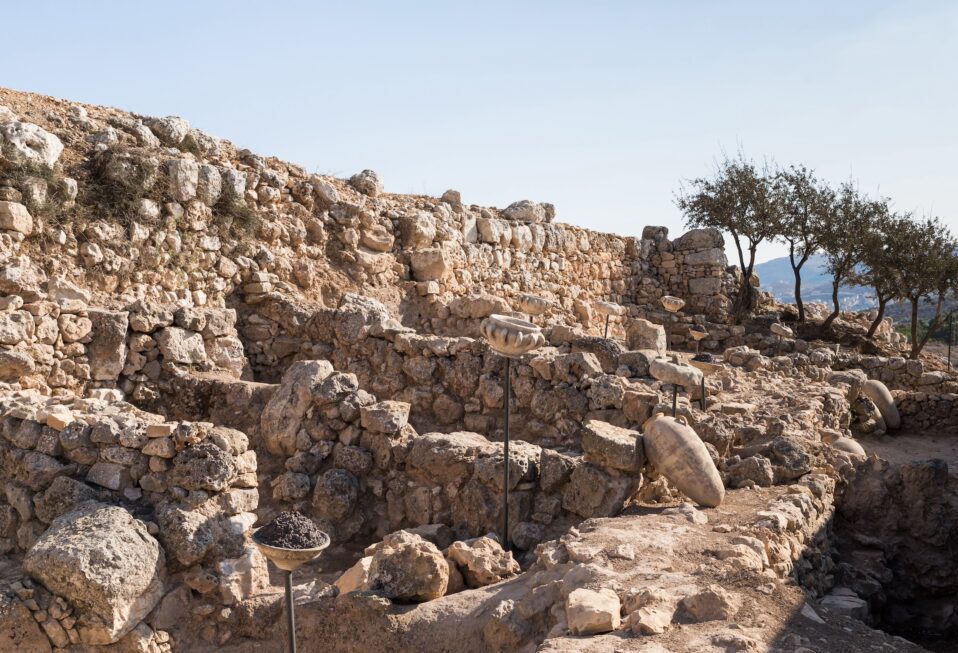By Stephen Faircloth
Rising quietly in the rolling hills about twenty-five miles north of Jerusalem, Shiloh once stood as the spiritual heart of Israel. After the conquest of the land, the Israelites set up the Tabernacle and placed the Ark of the Covenant here (Joshua 18:1). For centuries it served as the center of worship and pilgrimage.
Festivals were celebrated at Shiloh, and families from across the tribes traveled the main north-south road through the hill country to offer their sacrifices and prayers. The road itself became a path of expectation, carrying worshipers toward the place where God had chosen to make His name dwell.
It was to Shiloh that Hannah came with her desperate plea for a child. Here the priest Eli blessed her, and here God answered her prayer with the promise of Samuel’s birth (1 Samuel 1). When Samuel was old enough, Hannah returned him to serve the Lord, and in this sacred setting God began to reveal Himself to the young prophet (1 Samuel 3:21). This quiet settlement became the stage for some of the most tender and powerful encounters recorded in Scripture—moments of answered prayer, divine calling, and the unfolding of God’s purposes for His people.
Yet Shiloh’s story also carries a sobering warning. News of the Ark’s capture by the Philistines reached Eli at Shiloh, along with the deaths of his sons (1 Samuel 4). Archaeological excavations reveal a layer of destruction caused by fire in the eleventh century B.C., a date that matches the period of Eli and Samuel. By the time David and Solomon reigned, the Tabernacle was gone, and Shiloh was no longer the center of worship. Centuries later, the prophet Jeremiah pointed to its ruins as a living parable: “Go now to My place that was in Shiloh… and see what I did to it for the wickedness of My people Israel” (Jeremiah 7:12).
Shiloh teaches a timeless truth. The presence of God’s house is not a guarantee of His favor. The people of Israel trusted the symbol of His presence but ignored the God who dwelt among them. Their disobedience brought judgment, and the Tabernacle that once hosted His glory fell silent. Sacred space is never a substitute for a surrendered heart.
Today, visitors to Shiloh can still see the remains of its sanctuary and the evidence of its fiery destruction. Stones and earth bear witness to the message the prophets proclaimed: God desires obedience more than outward ritual, and His blessing rests on those whose hearts remain faithful.
This ancient ruin invites us to examine our own lives.
Are there places where we rely on outward appearances, religious habits, or spiritual memories rather than genuine devotion? Shiloh reminds us that God is not impressed by activity or ceremony but by hearts that love Him and walk in His ways. His presence is a gift, but His favor rests on those who obey.
Is there an area of your life where you are trusting a “symbol” of faith instead of living in daily surrender to God? How might you renew your devotion and obedience today?
Stephen Faircloth is the President of CBN Israel, an initiative dedicated to sharing the true story of the Jewish nation and inspiring a global community of Christians to stand with Israel and support her people in need. Our vision is to reshape the global conversation about Israel by fostering understanding, hope, and healing between Jews and Christians around the world. For more than 50 years, the Christian Broadcasting Network has supported Israel. By joining CBN Israel, you become part of this enduring legacy, transforming lives today and strengthening Christian support for Israel for generations to come.




Post a comment